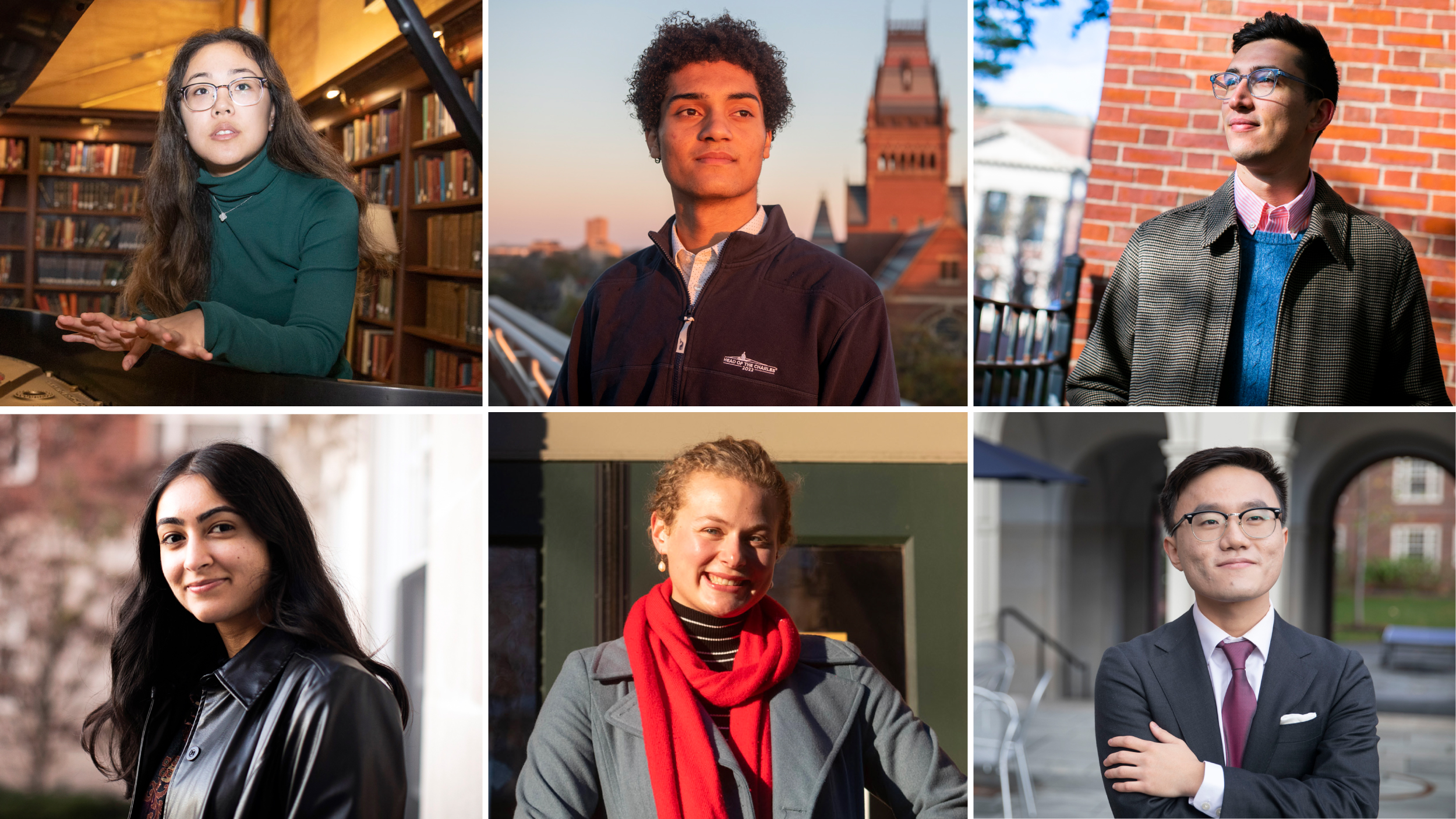
Lauren Kim (clockwise from top left), Isaac Robinson, Henry Cerbone, Brian Wee, Tessa Haining, and Amisha Kambath.
Photos by Kris Snibbe, Jon Chase, and Stephanie Mitchell/Harvard Staff Photographers
Headed for Oxford
Six seniors pursuing different paths, looking to make difference
Six Harvard seniors will head to the University of Oxford in October as part of the new cohort of U.S. Rhodes Scholars. Though they are planning to pursue varied degrees, all are eager to learn from each other and share their gratitude for those who helped them along the way.
Truman Scholar looks to build economic opportunities at neighborhood level
Amisha Kambath
Hometown: San Ramon, California
Concentration: Social studies
Kambath was still in shock days after receiving the news that she had been named a 2023 Rhodes Scholar. The 22-year-old recalled feeling almost as if she were hallucinating when she heard her name called.
“It still really hasn’t settled in,” Kambath said. “I’ve been so overwhelmed by love and support from friends, family, mentors, and professors. Also just feeling so much reciprocal love back, and such a deep appreciation for the people who have really helped me to even be just a finalist.”
Kambath was named a Truman Scholar in April and said then that she wants to pursue a J.D.- Ph.D. and work to change the criminal justice system as well as the system of economic inequities around it. She plans to use her time as a Rhodes Scholar to better understand how to build and structure economic opportunities within neighborhoods themselves.
At Oxford, Kambath hopes to pursue two one-year master’s programs, one in nature, society, and environmental governance and another one in English and American studies. The former will allow her to continue the interdisciplinary undergraduate work she has done as a social studies concentrator. The latter will teach Kambath the ways in which communities are depicted in literature and the tools needed to tell the stories of neighborhood change, development, and regeneration.
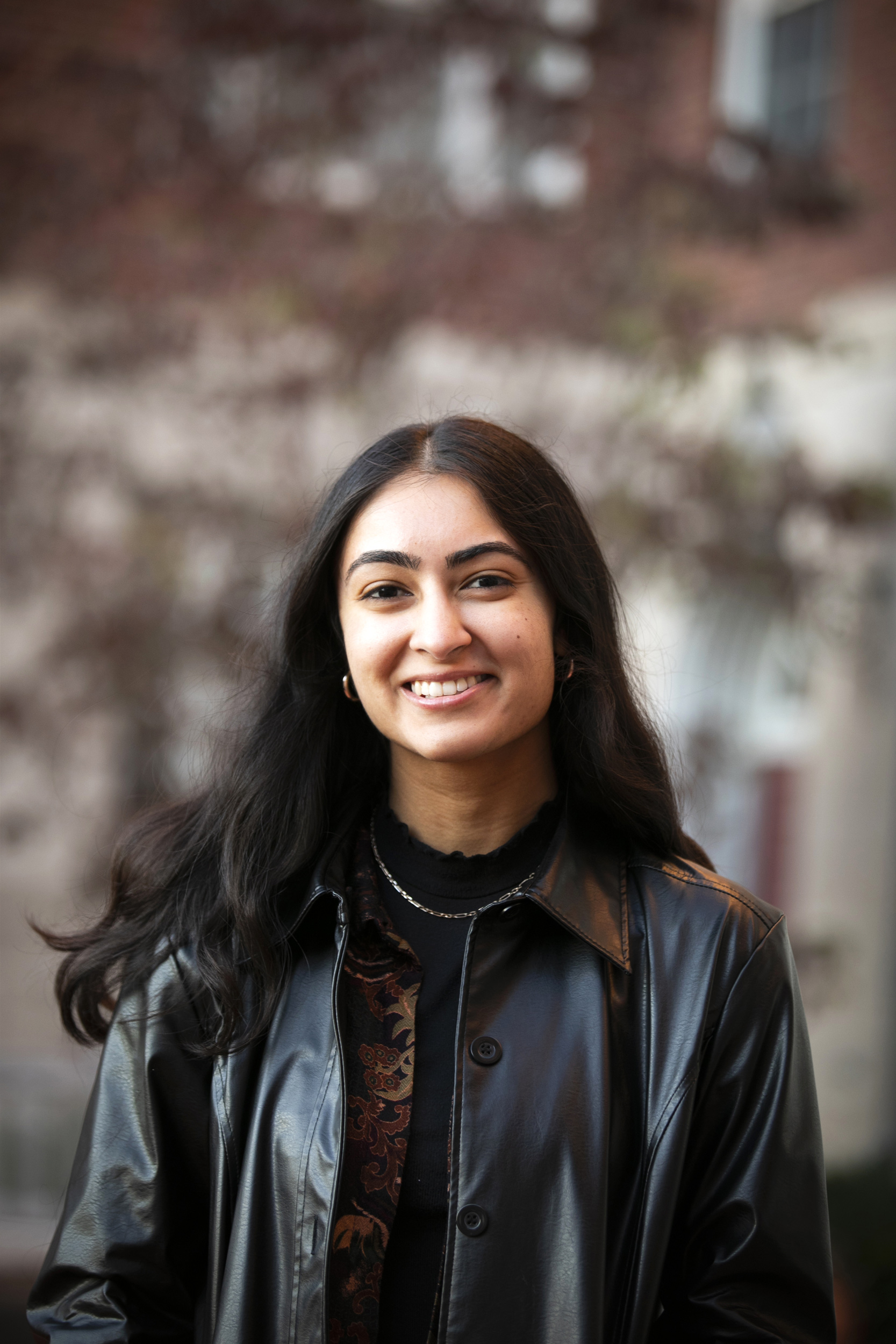
Stephanie Mitchell/Harvard Staff Photographer
Son of South Korean immigrants has studied COVID’s impact on people with underlying health conditions
Brian Wee
Hometown: Erie, Colorado
Concentration: Double concentration in chemical and physical biology, and government
The 22-year-old son of South Korean immigrants was born shortly after his parents arrived in the U.S. and said it has always been his dream to able to do something big to thank them for all their hard work resettling in a new country.
“My mother, unfortunately, passed away when I was younger, which ended up motivating a lot of what I’ve tried to do throughout my life,” he said, adding that he hoped to catalyze “all the amazing potential that I think she had to change the world.”As a Rhodes Scholar, Wee will aim to do just that. He is finishing a double concentration in chemical and physical biology and government and plans to pursue two master’s degrees at Oxford: one in international health and tropical medicine and another in global governance and diplomacy.
“I’ve had successive waves of excitement, gratitude, disbelief, and just a lot of joy,” Wee said. “It brought me so much gratitude for all the people who have supported me up until this point in my life. It’s been amazing to be able to share that with so many people who have helped me with classes, or advised me to research, or who have just helped me get to where I am today.”
While at Harvard, Wee researched the impact of COVID-19 on individuals with underlying health conditions in Parvis Sabeti’s lab — herself a Rhodes alumna and professor at the Center for Systems Biology in the Department of Organismic and Evolutionary Biology in the Faculty of Arts and Sciences, and the Department of Immunology and Infectious Disease at the T.H. Chan School of Public Health — organized the World Pre-Health Conference, and served as director of the Harvard Square Homeless Shelter. Apart from expanding his studies, Wee is looking forward to hiking around the U.K., including the Isle of Skye in Scotland and Snowdonia National Park in Wales. He also hopes to learn to make a proper Sunday roast or bangers and mash.
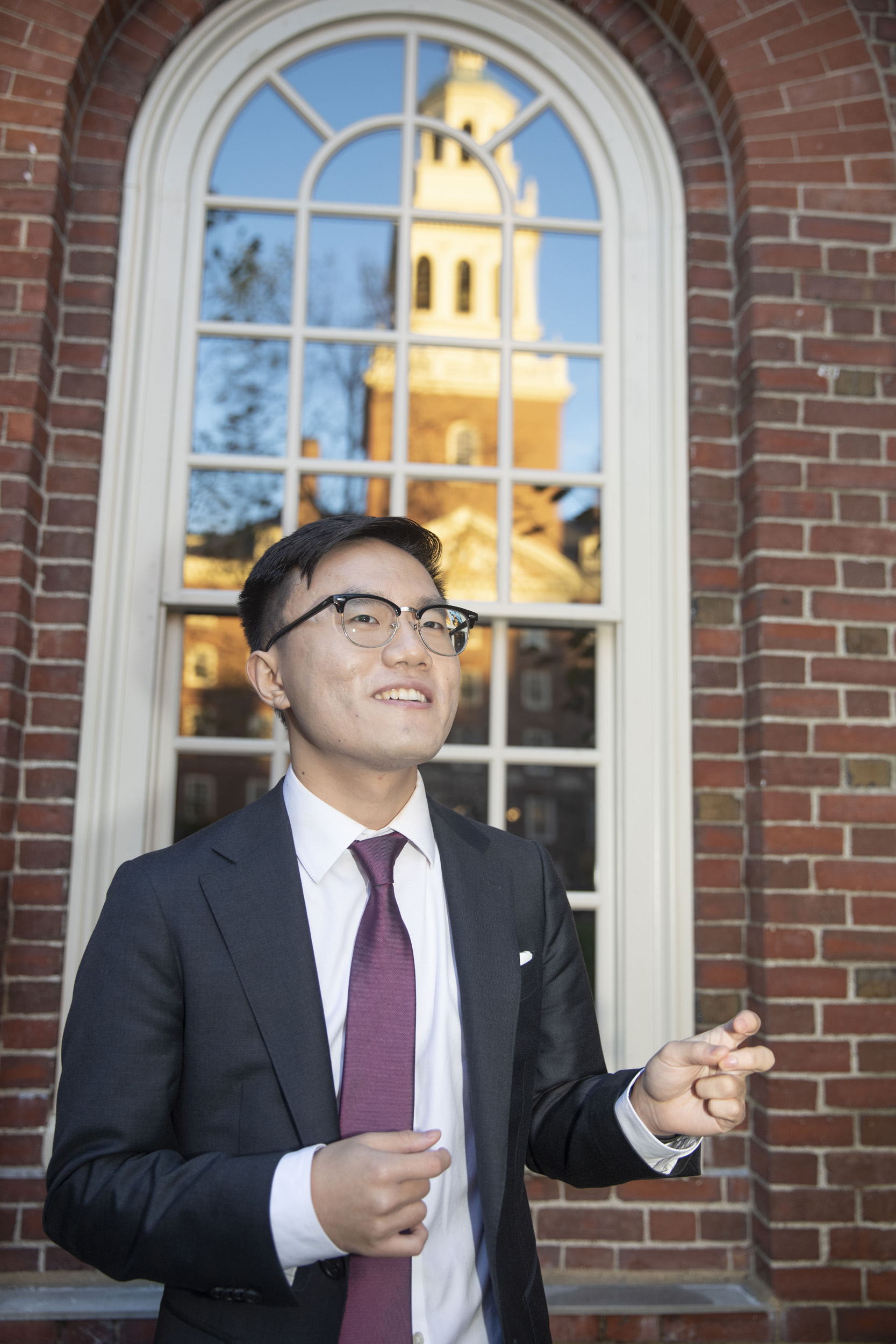
Kris Snibbe/Harvard Staff Photographer
Solution-seeker designed a degree at Harvard called ontology of autonomous systems
Henry Cerbone
Hometown: Albright, West Virginia
Concentration: Ontology of autonomous systems with a concurrent master’s in computer science
Cerbone is looking forward to taking his specialized undergraduate degree to Oxford. The 21-year-old designed a degree at Harvard called ontology of autonomous systems, which looks at the ways we think about life and nature and applying them to the work being done in robotics, computer science, and mathematics. He hopes to pursue a D.Phil. in biology at Oxford, ideally doing comparative biomechanics-type work.
“I see my time at Oxford being an initial step in taking what I was doing in my undergrad and extending [it],” he said.Cerbone said he is also looking forward to meeting and spending time with other members of the Rhodes community. “The brilliant people who have been awarded the Rhodes scholarship this year and in previous years at Harvard by and large [are] really wonderful human beings,” he said. “They are very good at things that I am not. They spend all of their time thinking about things that interface with the world, or they’re thinking about dead languages or about literature. I think that all of those things are really great. There’s a certain kind of Rhodes scholar who spends a lot of their time identifying problems in the world, and I think that I think of myself as finding potential solutions for those [problems].”
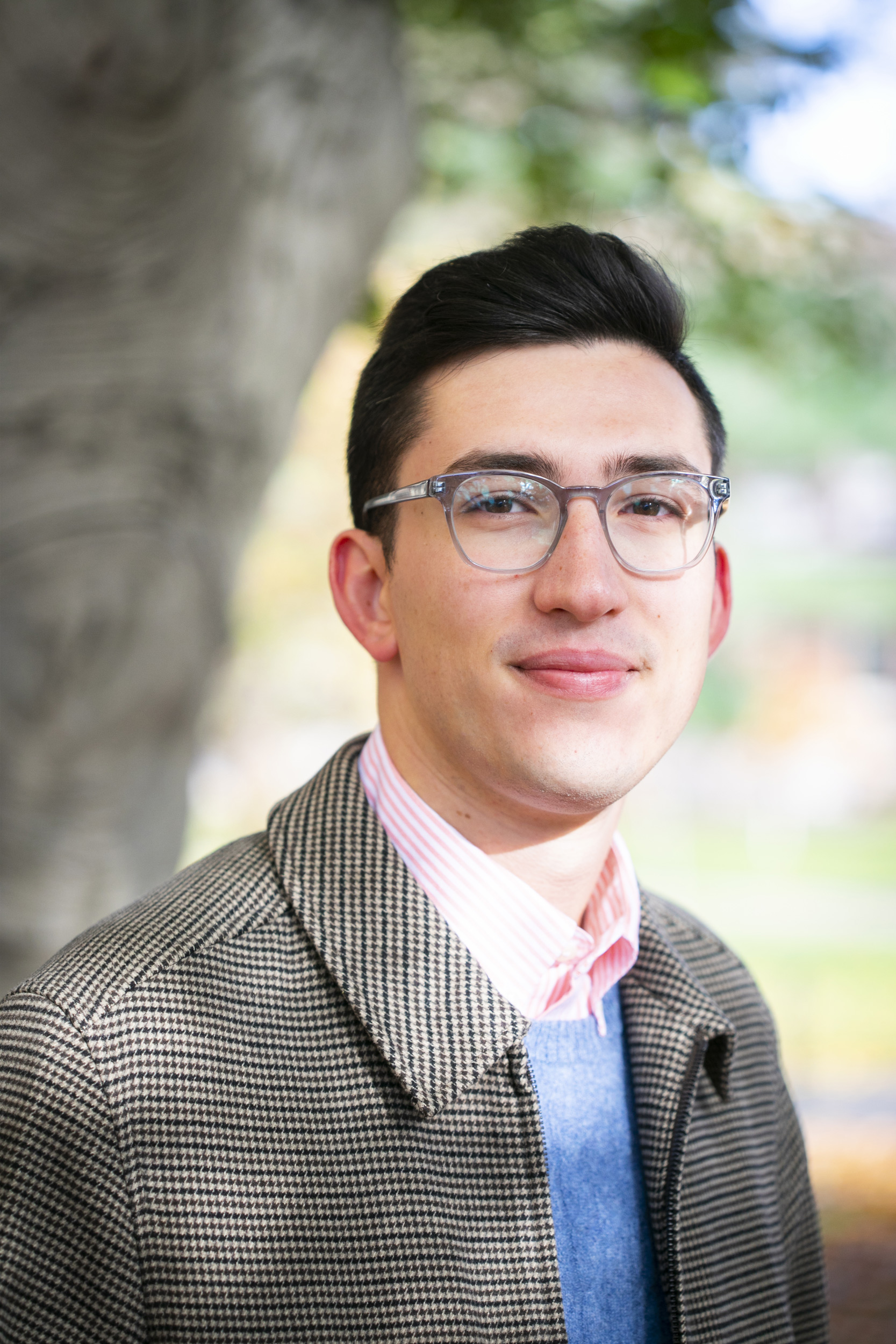
Stephanie Mitchell/Harvard Staff Photographer
Co-president of Harvard College Democrats is interested in electoral systems, fairness, voting rules, AI
Isaac Robinson
Hometown: Milton, Massachusetts
Concentration: Pure mathematics and computer science
Robinson, a varsity heavyweight rower, learned he was a Rhodes Scholar after sitting in a Zoom call for several hours with fellow classmate Tessa Haining. The two participated in interviews led by their district committee one recent morning, then waited eagerly for news while getting to know the other finalists.
“It was an awesome day, spending time with other finalists, seeing what they were interested in, [and] what they thought the world’s biggest problems were,” he said. “[They’re] really an exceptional group of people.”Since winning, Robinson has received a stream of congratulatory messages. “I’ve been very touched by all the congratulations and the support from my friends, family, community, and professors,” Robinson said. “I think there are still a lot of problems to solve and a lot of work to be done. I’m really thankful for the opportunity to have this platform to hopefully start to address some of those problems.”
At Oxford, Robinson hopes to pursue a degree in advanced computer science at the intersection of comparative social policy. The co-president of the Harvard College Democrats said he is particularly interested in electoral systems, fairness, voting rules, and artificial intelligence. Robinson, 23, is also excited to explore Oxford’s expansive campus and to meet fellow Rhodes Scholars from around the world.
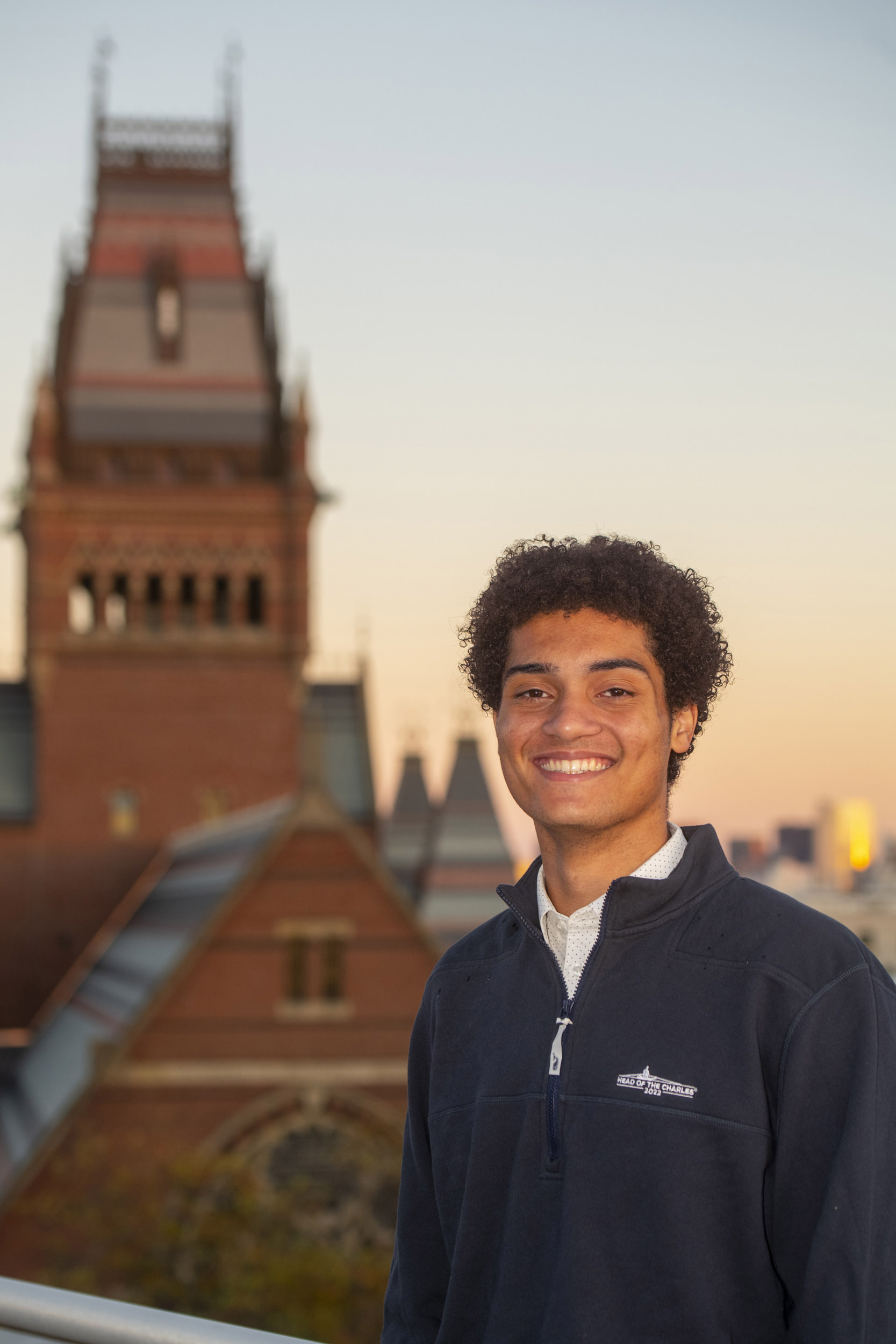
Jon Chase/Harvard Staff Photographer
Inspired by humanitarian doctor Paul Farmer, she is pursuing degrees in international health, medical anthropology
Lauren Kim
Hometown: Chicago
Concentration: Joint concentration in chemistry and engineering science
As a newly minted Rhodes Scholar, Kim, 21, hopes to follow in the footsteps of those before her. She is an undergraduate research assistant in Pardis Sabeti’s lab. Sabeti helped Kim navigate what it means to be a Rhodes Scholar, and shared knowledge during and after the application process.
“It’s honestly very humbling and an honor to be able to join the ranks of all of the other Rhodes Scholars out there,” Kim said. “[It’s] surreal to be able to say that I’m a Rhodes Scholar and that I’ll be able to have this sort of network and these connection with me for life.”Kim hopes to pursue two consecutive one-year master’s degrees: one in international health and tropical medicine and the second in medical anthropology. The two degrees will build upon Kim’s community service work in Western Africa and will put her on the path to do the type of work done by someone she greatly admired: Paul Farmer, who was Kolokotrones University professor and chair of the Department of Global Health and Social Medicine at Harvard Medical School, and beloved co-founder and chief strategist of Partners In Health. Farmer passed away last February.
“Paul Farmer really represents the paragon of both someone who can be an intellectual scientist and physician, but at the same time be a selfless community service, humanitarian, and medical anthropologist. He started from very humble beginnings,” Kim said. “I see myself a bit in that as a first-generation, low-income student at Harvard. I really hope to be able to impact low-income communities abroad.”
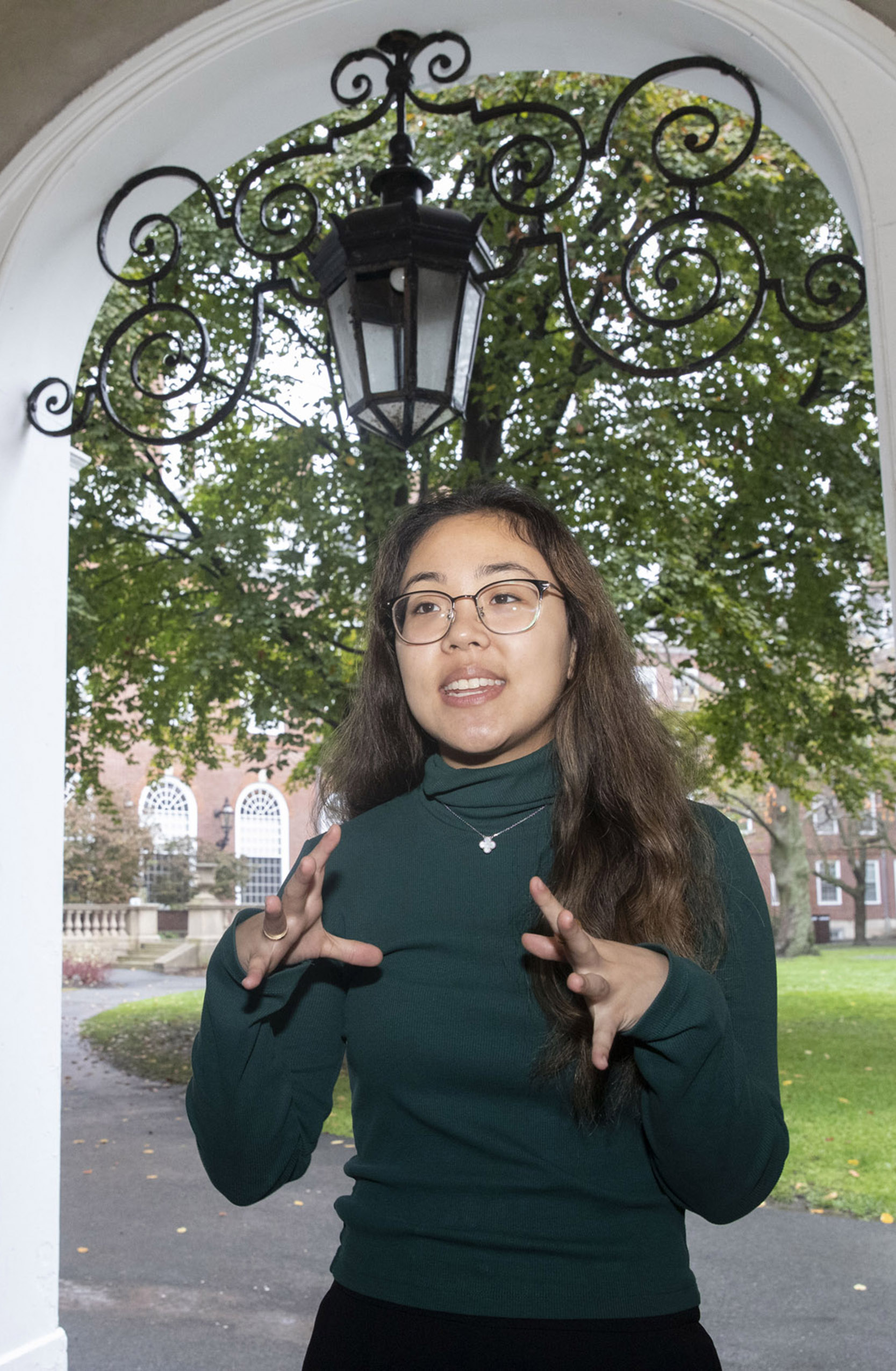
Kris Snibbe/Harvard Staff Photographer
Rower, violinist, peer counselor studies similarities between way we think about science and literature
Tessa Haining
Hometown: Newton, Massachusetts
Concentration: Joint concentration in Chemistry and Comparative Literature
Haining said it’s been “a very fun privilege” to be overwhelmed by the multitude of congratulatory messages from friends, coaches, professors, and high school teachers after being named a U.S. Rhodes Scholar. She will head to Oxford to study the history of science, medicine, and technology.
“It’s been an immense privilege to be here, grow up, and share my hometown with students at Harvard. That’s been one of my favorite things about going here,” the Newton native said. “It’ll be fun to be in a new place, learn a little bit about a new approach to everything.”At Harvard, the 22-year-old focused her studies on understanding the similarities between the way we think about science and literature. Haining aims to further explore her academic interests in history of science and philosophy of science, and eventually pursue a career in medicine, nonprofits, or governmental agencies such as the National Institutes of Health.
Haining dedicated much time to several extracurriculars that have helped her reflect on leadership and better prepared her for the Rhodes. She competes on the women’s heavyweight rowing team and plays violin in the Bach Society Orchestra, which is Harvard’s largest student-run orchestra. She is also a peer counselor for Harvard Eating Concerns Hotline and Outreach.
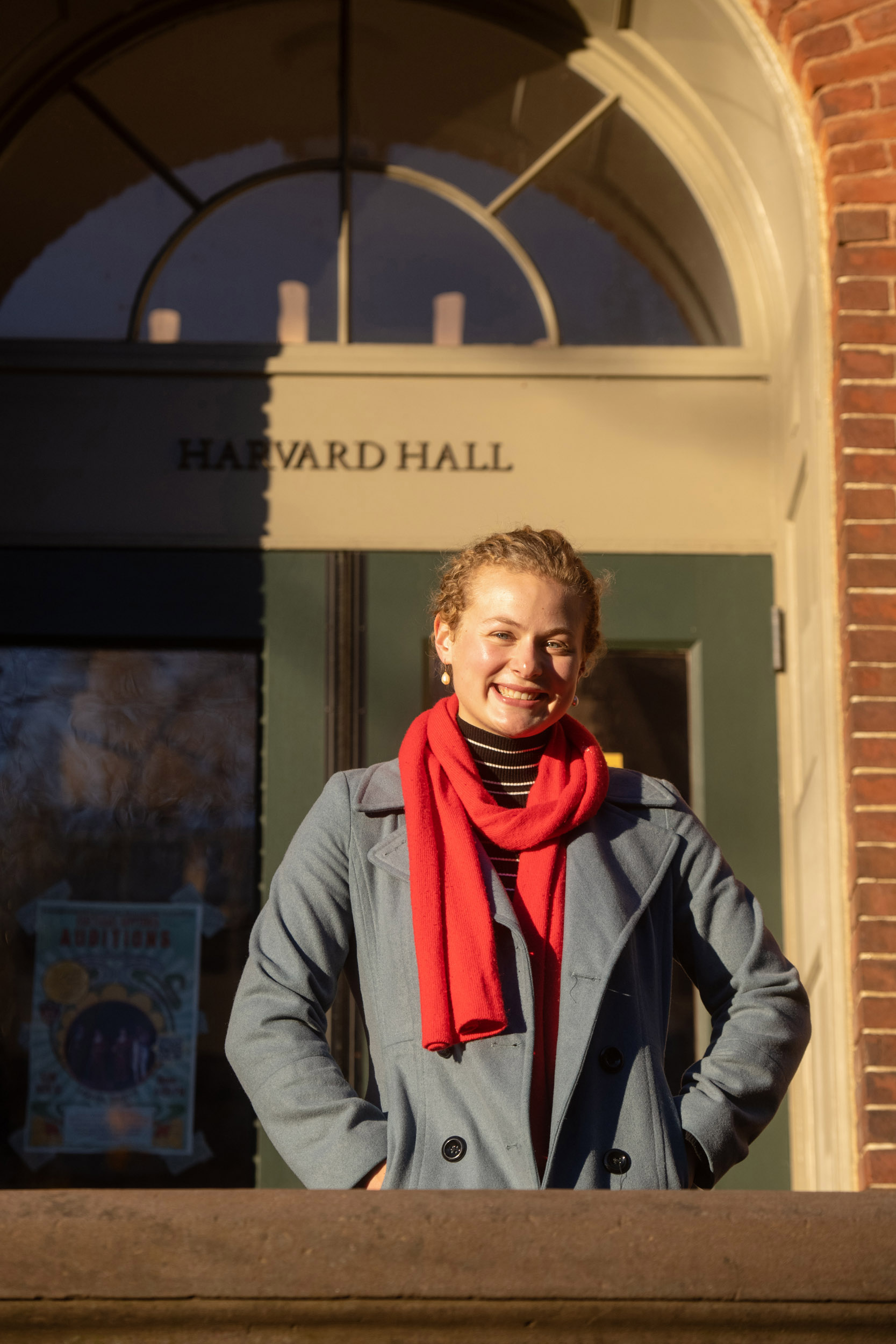
Jon Chase/Harvard Staff Photographer




